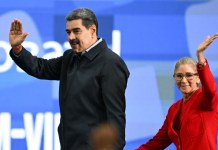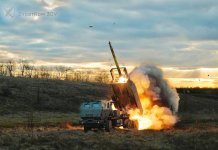India’s bid to prosecute Kashmiri journalists suggests a “pattern of silencing independent reporting on the situation in Jammu and Kashmir through the threat of criminal sanction,” according to a report by three UN special rapporteurs.
The report, sent to the Indian government on May 12, documented the cases of four Kashmiri journalists over the past five months – Naseer Ganai, Gowhar Geelani, and Masrat Zahra, all of whom have been booked under an anti-terror law; and Peerzada Ashiq, who was been questioned twice about his stories.
“In this regard, we recall that penalization of a journalist solely for being critical of the government or the political system espoused by the government is incompatible with the State’s obligations under the international human rights law,” reads the report shared on the website of the Office of the United Nations High Commissioner for Human Rights (OCHCR) this week.
The three UN rapporteurs – on the protection of the right to freedom of opinion and expression, arbitrary detention, and situation of human rights defenders – also expressed concern at the “apparent disregard for the prohibition on unlawful and arbitrary interference in the private life of individuals and journalistic privilege.”
As examples, they cited the cases of Ganai, whose laptop and phone “were searched without a warrant,” and Ashiq, who was asked to reveal the source of one of his stories.
The UN investigators said the broad scope of the laws under which the journalists have been charged made them “easily amenable to abuse.”
They reminded the Indian government of its obligations to “respect and ensure the freedom from arbitrary arrest or detention and right to freedom of expression under the international human rights law.”
New Delhi did not reply to the report within the stipulated 60-day period that ended on July 12, as well as three others sent by UN rapporteurs on May 4 and Feb. 27 this year and Aug. 16, 2019.
In those reports, the UN officials raised concerns over allegations of torture, extrajudicial killings, arrests, and the communications blackout imposed in Indian-administered Jammu and Kashmir after New Delhi scrapped the region’s special constitutional status last August.
Disputed Region
Kashmir, a Muslim-majority Himalayan region, is held by India and Pakistan in parts and claimed by both in full. A small sliver of Kashmir is also held by China.
Since they were partitioned in 1947, New Delhi and Islamabad have fought three wars – in 1948, 1965, and 1971 – two of them over Kashmir. Also, in Siachen glacier in northern Kashmir, Indian and Pakistani troops have fought intermittently since 1984. A cease-fire took effect in 2003.
Some Kashmiri groups in Jammu and Kashmir have been fighting against Indian rule for independence, or for unification with neighbouring Pakistan.
According to several human rights organizations, thousands have reportedly been killed in the conflict since 1989. Jammu and Kashmir has been under lockdown for almost a year, with human rights groups accusing the Indian administration of oppressing the people of the disputed region, especially since last August.
By Hilal Mir




